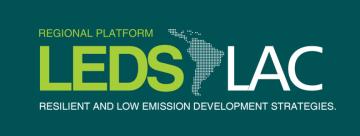
*Description in Spanish found below*
The Latin America and Caribbean Region (LAC) has served as a laboratory for inclusive green growth, having implemented clean, efficient, resilient and socially inclusive innovations, such as a low emission energy matrix, the first regional catastrophic risk insurance facility, Payments for Environmental Services and the world’s most extensive use of Bus Rapid Transit. However, converting these sparks of innovation into mainstream policies and widespread practices is a key challenge that lies ahead for the LAC region.
The aim of this webinar is to stimulate an in-depth discussion on how to leverage collective action towards inclusive green growth. With a panel of leading experts, the webinar provides discussion and debate on the key opportunities and challenges, and regional examples of where the pro-poor and inclusive approach is being implemented, lessons learnt, and critical knowledge gaps where further collective action is required.
The webinar will be held on 25 May from 9:00-10:30am (Costa Rica time) and will take place in Spanish.
Cómo hacer inclusivo el crecimiento verde en Latinoamérica y el Caribe
América Latina y el Caribe ha funcionado como un laboratorio experimental del crecimiento verde inclusivo del mundo, habiendo implementado innovaciones limpias, eficientes, resilientes y socialmente inclusivas, tales como una matriz energética baja en emisiones, el primer servicio seguro regional contra riesgos catastróficos, sistemas de pagos por servicios ambientales y el uso más extendido en el mundo de sistemas de autobuses de transporte rápido (BRT, por sus siglas en inglés). Sin embargo, un desafío para la región es convertir esos destellos de innovación en políticas institucionales y prácticas generalizadas.
Este webinar busca estimular una discusión profunda sobre cómo aprovechar la acción colectiva hacia un crecimiento verde inclusivo. Con un panel de destacados expertos, el seminario ofrece la discusión y el debate sobre los principales desafíos, oportunidades y ejemplos regionales de donde se está aplicando el enfoque inclusivo a favor de las personas en condición de pobreza, las lecciones aprendidas y los vacíos de conocimientos fundamentales en que se requiere una mayor actuación colectiva.
Agenda
Introduction
Aída Figari, Technical expert of LEDS LAC Secretariat, Libelula
Tamaro Kane, Green Growth Knowledge Platform (GGKP) Coordinator, World Bank
Speakers
Carter Brandon, Lead Economist, World Bank
Matias Gallardo, Focal Point, Green Economy Initiative and the Finance Initiative, UNEP LAC Regional Office
Alex Kasterine, Head, Trade and Environment Programme, International Trade Centre (UN/WTO)
Speaker bios
Tamaro Kane
Tamaro Kane coordinates the World Bank’s contribution to the Green Growth Knowledge Platform. Prior to her current role, Tamaro served as a Research Assistant in the Early Recovery, Livelihoods, Poverty Reduction and MDGs unit of UNDP’s office in Haiti providing technical assistance to conditional cash transfer programs, impact evaluations, and the elaboration of a national social protection strategy. She has also worked at the African Development Bank, Clinton Foundation, and International Rescue Committee. Tamaro is Senegalese American and holds a Masters in International Economic Policy from Sciences Po Paris and a Masters in International Finance from Columbia University.
Carter Brandon
Carter Brandon is the World Bank’s Global Lead Economist for the Environment and Natural Resources Global Practice. Over his twenty years at the World Bank, he has held lead positions in both headquarters (Latin America and South Asia regions) and in the field (Beijing and Buenos Aires). His primary interests are in the linkages between the environment, welfare and growth. He was educated at Harvard University (B.A.) and Oxford University (DPhil, ABD, Agricultural Economics).
Matias Gallardo
Matias Gallardo currently serves as the focal point for the Green Economy Initiative and the Finance Initiative of UNEP in Latina America and the Caribbean Regional Office. With over seven years of work in public, private and international organizations on project and programme coordination and management. He holds an MSc in Political Economy from LSE.
Alex Kasterine
His professional interest lies in the role of markets to deliver sustainability particularly in the field of trade, agriculture and biodiversity. Prior to joining ITC in 2002 he worked as a research economist at University of London and in Mexico for a conservation NGO carrying out research into sustainable farming systems and markets. Alex holds a Ph.D. in Agricultural and Natural Resource Economics from Imperial College, London.
